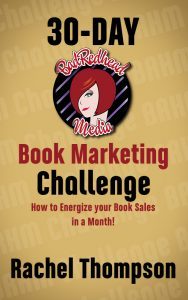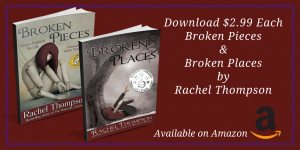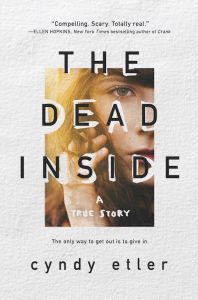Rachel Thompson's Blog, page 6
May 28, 2017
Top 4 Tips to Improve Focus in This Chaotic Climate
It’s been a tough few months out there, hasn’t it. Slightly distracting? Just a wee bit, yea?
My personal watchword for this year is FOCUS. I’ve made an effort each year, for the last few years, to have a guiding word: compassion, passion, etc. Why?
When life gets hectic, this one word ‘mantra,’ if you will, is a quick way to reel us back in – a conscious meditation. Listen, I’m probably one of the least new-agey people you will meet, but I am a true believer in getting shit done. As a single mom, full-time author and full-time business owner, I don’t have time to waste on distractions.
I find watchwords usually find us, and this has never been more true this year for me (and for many others as well). Focus is critical.
Unless you’ve been in a cave somewhere, the U.S. is in chaos – heck, the world. With a reality TV star playing at being president, the news is unending, rarely good, and changing every thirty seconds. As survivors, many of his actions and executive orders affect us in one way or another – or affect those closest to us. Triggers abound.
Kelly wrote a wonderful article for me on staying strong and sane with all this noise, one I encourage you to read right now. How am I handling staying focused right now? It’s been difficult, as I’ve never been busier work-wise or writing-wise. Here are my top four tips:
Put Social Media on Pause
When I’m working on client accounts or writing, social media is a huge distraction. It’s impossible to keep track of the latest news and stay task focused, so I don’t even try. I made extra effort this past week to not only avoid social media, but to also avoid constant discussions about politics in real life.
As a survivor of childhood sexual abuse, many people contact me privately, asking me to share an article, read an update, make a statement, or help them deal with something that’s triggered them. I’m humbled by their trust and faith in me, truly.
But, I also have to set boundaries. I cannot be available 24/7 to everyone, and I have to keep in mind that I have lines I won’t cross. I’m in thriver mode, but that doesn’t mean I’m no longer triggered myself.
NO is a complete sentence, and if people become upset at my lack of availability to them on their schedule, that’s their issue, not mine.
Example: A fellow recently asked me on Twitter to weigh in on an issue regarding one of Trump’s executive orders, and because I was unavailable at the time, I didn’t see his request until a few hours later (I was working and then took my daughter to the eye doctor). I focused completely on my work, and on my daughter.
He was furious I didn’t respond right away, proceeding to troll me for a few hours. Of course, I didn’t respond (which leads me to my next point), and then blocked him.
Respect Your Time and Focus
Do not feel obligated to engage with anyone, ever.
Honestly, it was none of anyone’s business what I was doing (I could have been eating bon-bons, if I wasn’t lactose intolerant), but here’s the truth: out of respect for my time, I didn’t feel the need to explain to him why I didn’t respond. I am not his employee, therefore, I do not owe him my time.
Do not feel obligated to engage with anyone, ever. Guard your time, whether it’s with family, writing, work, exercise, sleeping, doodling, whatever it is that you do to be the person you are. You’re an adult, so make the decisions you need to be the whole person you need to be without anyone’s permission but your own.
Trolls especially do not deserve our time. I’ve fallen into those ridiculous arguments and have always regretted that time, effort, and emotion wasted. I now ask myself these questions:
What will I gain by responding to a troll?
What do any of us gain by interacting with negative, toxic people, whether in real life or online? Remember, I’m not the only who sees my responses online.
How does this benefit my mental health (which brings me to my next point)?
This is a question I ask myself before I hit reply. If there’s no positive benefit, I move on.
Respect Your Mental Health
Focusing on my own work, writing, and family this week, I reflected on the benefits: I got so much more work and writing done, achieved a few personal goals I hadn’t expected, and fit in additional appointments for my kids.
From a mental health perspective, here’s a truth bomb: I experienced less anxiety. One of the leftovers of being a survivor is dealing with anxiety, depression and hyper-vigilance. The constant barrage of news is difficult for me – I’m good with occasional check-ins; yet being on social media, updates are unavoidable.
I also don’t want to be blind to it. There’s so much going on with regard to survivors, survivor legislation, and it’s our time. We’ve lived with this dark shame for decades (though, as I write in Broken Places, I made friends with Shame. She’s been with me for a long time and has a lot to say). I’m happy to see so many people own their voices.
Owning our stories is empowering; be part of the wave – if and when you’re ready.
Think Twice About Sharing Political Views
Sides to a coin. I completely understand the angst and passion on this topic. How can we be alive right now and not comprehend it all?
Don’t get me wrong; I love social media. It’s been a wonderful additional to my personal, author, and work life. I always say social media is what you make it – you get what you give. If you give love, you get love. If you give troll, you get troll. You get the idea.
As a social media strategist (one of my hats at BadRedhead Media), I advise author clients to avoid discussing politics for this main reason: unless your book is about politics, you risk alienating potential readers by sharing a polarizing view.
How is this possible in our current climate, though? Believe me, I get it. I’ve stated my opposition here in this article to our current Keystone Cops administration. I’m braced for the haters, and I accept that.
Why bother? Because I feel there’s a responsibility as a survivor and advocate with a large platform to be vocal for other survivors, and when it comes to protecting our survivor rights, I believe my voice matters.
Focus on What Matters Most
I may wear a coat of boundaries, lines, and self-care, which all huddle around me to keep me sane, but here’s the ultimate reality: I survived horrific crimes as a child, in college, and in later life (not shared yet, but writing about now in the upcoming Broken People). It’s truly up to me to decide how best to get through right here, right now.
Just as it’s up to you.
*This post originally appeared on WilsonWrites.com and is reprinted here with permission and attribution.
SALE: Award-Winning BROKEN PIECES and BROKEN PLACES $2.99 right now on #Amazon!
The post Top 4 Tips to Improve Focus in This Chaotic Climate appeared first on Rachel Thompson.
May 21, 2017
This is the Reason All Great Stories are Birthed from Shame by guest @KristenLambTX
Guest post from amazing author friend Kristen Lamb
Back in 2002 when I finally made the decision to become a novelist, I had no idea what kind of a personal journey I’d signed up for. In fact, that could make an entire book—okay, series of books—in and of itself.
When I started writing, I was not a very nice person. I was angry, self-centered, undisciplined, and immature. But I did have great hair so it wasn’t a total loss.
In short? I was a jerk.
Often though, the trouble with jerks is they are the only ones unaware they are jerks. Kind of like that movie The Sixth Sense.
I see jerks. Everywhere. Walking around like regular people. They don’t see each other. They only see what they want to see. They don’t know they’re a jerk.
Yeah, that was me. It was everyone else. Everyone else was responsible for ***insert emotion/problem/drama here***.
And maybe this isn’t a very useful post for you because you’re reading Rachel’s blog and that means you’re all wonderful, perfectly adjusted individuals who rescue kittens when you’re not knitting onesies for cold baby goats. But maybe what I have to say today can help…a friend
May 6, 2017
Trauma-Informed Care: What is It? Why Do We Need It? by @BobbiLParish

Why do we need Trauma-Informed Care?
Every minute 20 people in the U.S. become victims of intimate partner violence.
Every 98 seconds an American is sexually assaulted.
One in 8 U.S. soldiers returning from a combat zone suffer from Post Traumatic Stress Disorder (PTSD).
Countless other Americans are traumatized by surviving natural disasters, violent crime, serious illness, and tragic accidents.
First responders to these crimes and incidents suffer from secondary PTSD at alarming rates.
Simply summarized, 7.7 million Americans suffer from PTSD as a result of exposure to traumatic circumstances or events. That is a staggering 20% of the U.S. population! And yet our mental health, general health, and public institutions, in general, are largely ill-equipped to provide services to those with PTSD because they are not trauma-informed. They are lacking in even the most basic knowledge of how trauma affects individuals and how they can help them cope. Due to their ignorance, many of those with PTSD are provided either ineffectual treatment or, worse, treatment that re-traumatizes them and hinders their recovery.
It’s time to implement trauma-informed care in every part of our communities that significantly interacts with the public, from health care to school systems to public service agencies. We cannot expect our citizens with PTSD to recover if we don’t provide them with high-quality trauma informed care.
What is Trauma-Informed Care?
Trauma-informed care has four key operational goals:
It realizes the widespread impact of trauma and understands potential paths for recovery.
It recognizes the signs and symptoms of trauma in clients, families, staff, and others involved with the system.
It responds by fully integrating knowledge about trauma into policies, procedures, and practices.
It seeks to actively resist re-traumatization.
Trauma-informed care prioritizes these six principles to meet the operational goals:
Safety – many survivors of trauma live in unsafe situations, others deal with suicidal thoughts, urges to self-harm and addictions that threaten their physical health. Trauma-informed care focuses on a client’s safety first and foremost and maintains that safety over the course of treatment and/or interactions with their client.
Trustworthiness and Transparency – many survivors of trauma, especially trauma within interpersonal relationships such as child abuse or domestic violence, have endured years of emotional manipulation and grooming. They have difficulties trusting and are highly sensitive to interactions that have the faintest whiff of deception and coercion. Trauma-informed care does not put down clients with difficulties trusting but understand it’s a consequence of their trauma. Instead, they are very transparent with their policies and actions, working to gain their client’s trust.
Peer Support – Trauma-informed care recognizes and utilizes the power of peer support. Many individuals with PTSD feel isolated and alone. They often feel misunderstood. At times they feel like they’re the only one in the world who feels and thinks the way that they do. The way to unlock each of those negative feelings is through peer support. When survivors of trauma come together there is a powerful sense of community. Survivors know they aren’t alone and that there are others who are going through what they are. They feel an incredible amount of support, and lack of judgment, through peer interactions.
Collaboration and mutuality – Trauma-informed care utilizes a team approach to treating and interacting survivors. The client’s needs are evaluated holistically. Rarely does one form of treatment resolve PTSD. Clients often need a collaboration of methods, such as talk therapy, EMDR, and art therapy. Just as importantly, trauma-informed systems recognize the survivor as a valid and valuable member of their own treatment team. When survivor’s wishes and experience are treated as an afterthought it takes them back to their trauma, which by its very nature is something they powerless against.
Empowerment, voice, and choice – Trauma-informed care recognizes that survivors had very little voice or control during their trauma. Children couldn’t speak up against a parent abusing them. Spouses couldn’t defend themselves against a violent husband or wife. Soldiers could not predict when the next Improvised Explosive Device was going to be buried in the roadway ahead of them. Trauma strips away a survivor’s belief that they are powerful. Appropriate treatment restores their ability to choose, values their voice and empowers them to build a life where they exercise the power and control over themselves.
Cultural, Historical, and Gender Issues – Trauma-informed care is not a cookie-cutter approach. It recognizes that different cultures, genders and personal histories color each survivors’ experience. It actively seeks to understand a survivor’s experience and incorporate their individual needs into treatment.

What Happens Without Trauma-Informed Care?
Without trauma-informed care, we are not only providing ineffective care to the 7.7 million Americans with PTSD, but we are at risk of re-traumatizing them.
It’s time to stop mistreating 20% of our population.
It’s time to implement trauma-informed care into our health care, schooling, criminal justice and public service systems.
Now. Before we lose more survivors to suicide, drug and alcohol overdose or a mental health crisis so severe quality of life is lost forever.
Before we lose more survivors to suicide, drug and alcohol overdose or a mental health crisis so severe quality of life is lost forever.
References:
Substance Abuse and Mental Health Service Administration
SALE: Award-Winning BROKEN PIECES and BROKEN PLACES $2.99 right now on #Amazon!
The post Trauma-Informed Care: What is It? Why Do We Need It? by @BobbiLParish appeared first on Rachel Thompson.
April 29, 2017
Here are Four Solid Reasons for Having No Shame by @cdetler
Guest Post by Cyndy Etler
Four Solid Reasons for Having No Shame
You a Madonna fan? If yeah, you know the lyrics. They’re from “Burning Up,” from her black-rubber-bracelet/saggy-cotton-hairbow phase. Madonna kept it real. She wasn’t like the others. She had no shame. And neither should you if you’re a memoirist. I’ll give you four good reasons why.
Reason #1: The Lucrative.
If you want your memoir to be the one on The Hot List, you’ve gotta put your dirtiest laundry out there. The bleakest, nastiest, most humiliating scenes from your life need to land on that page. That’s what people will pay for because that’s what’s in short supply: brutal honesty.
I’ve read that authenticity is the new cash and for good reason. Scroll through any feed, turn on any TV, and you’re inundated with “enhanced reality.” We’re all perpetually link-armed with our squad of gorgeous besties. We’re also always sitting with our feet up in a sepia-toned drawing room, reading some blurry-paged book. Our hair is ever-glossy and our brows, they stay on fleek. Right? Nope. But who’s gonna be the first to admit, “I didn’t wake up this way”? Well, you are. And people are gonna love you for it.
A lot of media sells aspiration. When we take in a midday soap opera or flip through a copy of Vogue, we inhabit that gilded, high-cheekbone life for a stint. In some vague, smoky part of our brain, we sense suitors approaching the side door, bearing small boxes in Tiffany blue. Romance novels, New York fashion romps and Tom Clancy spy thrillers work the same way: they let us pretend we live a “superior” life. But when the last page is turned, what’s a reader left with? The crash back to reality: Sighhh. I live in this one-bar town, in a ranch house with wood paneling.
The flipside objective of media is diversion; the presentation of horror and baddies we pray we never meet in real life. Such stories give us a look at the weird, splayed angles a human limb can take in the temporary wreckage of a life. You’ve heard the newspaper adage, “If it bleeds, it leads”? Yeah, well. Dark is fascinating. It stimulates untapped neurons in the brain, or something. When it’s a true story of dark, readers get the added thrill of knowing, “This could’ve been me.” And even better, “This could’ve been me, but it wasn’t.” Suddenly that one bar in town feels like a honky-tonk; that wood paneling is warm and down-homey. The reader’s life becomes—phew—a-okay in comparison.
People will shell out some coin for a neuron-firing roller coaster that drops them off at phew. For proof, see Frank McCourt. Be the new Frank McCourt, author. Be the kid with the smelliest life on the block.
Reason #2: The Vindictive.
If you’re writing memoir, you’ve been screwed over. Like, bad. Do people even write memoirs about their stultifying placid childhoods? Yeah, I didn’t think so, either. So. Some people were wicked cruel to you. Tell us about it. In detail. Stop carrying their shame around in a snuggie on your chest, because fug’em. Spill it.*
Okay, maybe you’re a better person than me. Maybe you don’t want retribution. How about…do you want emotional freedom? Do you want validation? Do you want that gorgeous springy sensation from day three of the Z-Pak, when you finally remember what it’s like to feel human? Narcing on your abusers will give you all that and more.
True story:
For the 20 years following my horror show of a childhood, the doctor prescribed me narcotics. Anti-anxiety meds. Anti-depression pills. In other words, anti-abusive-history drugs. Then I started writing my memoirs, and the anvils of terror and self-contempt lifted.
Was it the exorcising of the demons that healed me, the way a good drunken puke tells the body it’s not gonna die tonight, after all? Or was it seeing the events laid out in ink on paper, complete with cause and effect, that taught me, “Girl, it’s not your fault—you didn’t cause it; you’re just the superhero who survived it”?
Whichever it was, I’m off the psych meds now. With my psychologist’s blessing, my anti-anxiety prescription is yoga and meditation. And that’s enough. I walk around feeling happy and sane-ish, knowing who the bad guys are in my story…and knowing they know that I know. And so does the whole reading public.
So even if you are nature’s little sweetie, with no desire for comeuppance, lemme tell you something: it feels good to take the power back. It feels like frigging flight. And no guilt, you hear me? You’re not the one who should be feeling guilty. As OG** memoirist Anne Lamott says, “If people wanted you to write warmly about them, they should have behaved better.” Everyone has revenge fantasies. But you, dear memoirist, you get to live yours.
Reason #3: The Self-Protective.
Here’s some dirty laundry for ya. I stood up to my own personal bully the other day. Instead of pleasantries, I spoke unfriendly truths. My husband, a wise and thoughtful man, said this: “Be careful. With your book out now, you could be a target. People might try to smear you online.”
“How?” I got to say back. “I smear myself in my books. There’s nothing bad anyone can say about me that I don’t already confess to. In print.”
Like the extra-thick woman in the fitted poly dress with the VBO***, like the gay boys who use “queen” as a compliment, when you highlight what others think you should be hiding and hating in yourself, you win. You hold all the power. Folks can try to hurt you by pointing out your supposed “flaws,” but when you’ve already put those flaws on blast, making clear that you embrace them, your haters become your publicists. This sounds counter-intuitive, but revealing all your secrets in your memoir can end up making you safer. And in fact, as we examined in The Lucrative, doing so can make you beloved.
Time Magazine reported that Adele—on stage, in front of thousands—apologized for having gas. That’s Adele. Billboard Top 100 Adele. Trazillionaire Adele. Telling everyone she has gas. Right that very second. Does anyone talk trash about Adele? Nuh-uh. Why not? There’s no point. You can’t damage the woman who announces her own gas.
Reason #4: The Curative.
This one’s my raison d’etre, which means my “reason to live.” At least, I hope it does. Okay, do over. This one’s my greatest intention: that my memoirs will reach kids who are isolated or depressed or abused today, and give them the human connection I needed so desperately as a child. Books can do that. Memoirs can cure.
Shameless fame-whore moment: in December I was sitting at my literary idol’s kitchen table. I’m not quite shameless enough to drop her name, but you’d know it if I did. So. When she speaks, I listen. I posed a question to her: “This hairy stuff happened in my house, but it didn’t happen to me. It affected me, but it’s like, somebody else’s secret. Do I put it in or leave it out?”
Her answer was fast and furious: “You put it in. You have to. Because that’s reality. That’s the stuff that happens, but nobody will talk about it. So kids who are living it think they’re the only ones. You put it in, so some kid reads it and realizes they’re not alone. You put it in to save some kid’s life.”
She’s right. That’s how it works. Shame creates secrets, and secrets create death. I was at another friend’s table last night—I’m telling you, I am just always link-armed with my gorgeous besties—and she told me the story behind her husband’s foundation, Pints for Prostates. A friend of theirs had stumbled into having a full blood scan…and learned he had cancer of the prostate. Realizing that most men avoid discussion of the prostate zone, their friend made it his mission to spread the word: “Guys, get your frigging PSA (prostate-specific antigen) blood test done.” Friend’s hubby took his advice…and learned he had prostate cancer, too. Now a healthy survivor, he’s living proof of my point: sharing your ugly, embarrassing stuff saves others’ lives.
So listen. If Madonna can roll around all alone in the middle of the street, with her greasy hair and her dark roots? If she can do all that and feel damn good about herself and make millions on her art? Just imagine what you can do, with your polished cheekbones and your sepia-hued Instagram feed. Write it out, baby. Write the real that’s under the fake. Write it and hit print. No shame.
*You can selectively unspill before your book goes to print. For all the dirty dirt in my memoirs, there are sharp pointy details I’ve edited out. I may talk vindictive bravado, but I have no actual desire to hurt anyone. My gauge is this: if a memory involving someone else is fundamentally about my experience, and it’s pivotal to the plot, it stays in. Even if it will embarrass or hurt that other person. If the memory is not about my experience, if it’s just a juicy tidbit about their life, it gets cut. In some rare instances I’ve cut details that are 100% about me, that are 100% essential to the story, because, well, some details are too bleak. At least while the perpetrator is still above ground.
**OG=Original Gangster
Cyndy Etler (@cdetler) is the author of bestselling YA memoir The Dead Inside (Sourcebooks Fire). The Dead Inside takes readers into Straight Inc., a treatment program described by the ACLU as “a concentration camp for throwaway teens.”
SALE: Award-Winning BROKEN PIECES and BROKEN PLACES $2.99 right now on #Amazon!
The post Here are Four Solid Reasons for Having No Shame by @cdetler appeared first on Rachel Thompson.
April 16, 2017
This is the Reason Building Relationships With Readers Matter

I write a lot about managing both writing and book marketing over on BadRedhead Media because that’s what I do — I wear both hats. In addition to being an author, my day job, my business, is book marketing, social media strategist, branding, and author platform building.
All this comes easily to me because I have a long background in sales, marketing, and training: seventeen years in soul-sucking Big Pharma: many awards, trips all over the world, bonuses, a company car, a stint in the home office (hated it), too many years calling on physicians in the field making sales presentations (hated it), and training others how to do so (loved it).
What I learned in all that time — besides the fact that I hated sales — is that I loved training, marketing, and the relationship building aspect of marketing — which is interesting, given that I’m an introvert. I found that the more time I spent interacting and connecting with physicians on a personal level before I got to the sales part, the more I sold. And I sold well. It wasn’t flashy, with crazy contests or bunny costumes (yes, I had colleagues who did these things). No, it was the quiet, personal, long-term connection that resulted in top sales many years over.
I didn’t hate every part of sales: I disliked the hard sell. The awkwardness of The Ask I hadn’t earned. So what did I do? I earned it.
I truly believe that building long-term relationships with readers, book bloggers, reviewers, and other publishing influencers can make or break you as an author. How can you connect with readers? That’s the question I hear daily as both an author and entrepreneur, and even as a survivor and advocate. Let’s deconstruct.
First, Write Great Books Readers Want to Read
First, above all else, you must write great books. You cannot scribble out your first draft, upload it to Amazon with a cover your kid designed, and call it a book (well, you can, but you won’t sell anything). I’m only talking to you, writers who take the craft seriously. Who are working with a professional editor, formatter, and graphic designer (or have a publisher). Who, despite challenges like a full-time job, the daily grind, or health issues, will make your book happen.
If you are a writer, nothing will stop you from writing your books. We all have challenges that get in the way of our writing — I’m no different! I’m a single mom of two kids (with no child support or alimony), a quirky cat (who loves to sit on my computer keyboard), own a business I love that pays the bills, have chronic migraines and PTSD from being a childhood sexual abuse survivor. Anxiety, depression, flashbacks, and triggers are part of my daily routine but I’m fully functional with the help of meds and support.
If you’re not prepared to put every ounce of your soul into your writing,
if you’re not digging deep and giving yourself permission to write what scares you,
to write the really hard, ugly-cry stuff,
if you worry what others will say,
if you’re glossing over uncomfortable experiences for fear of family/friends/coworker judgment,
or if you’re only writing one book thinking you’ll be living in a mansion off the profits —
then give it a rest right now.
Do The Work
I’ve published two humor books, two books of essays and poetry that discuss the aftermath of childhood sexual abuse, Broken Pieces and Broken Places, one business book, the BadRedhead Media 30-Day Book Marketing Challenge so far, plus I’m in two Feminine Collective anthologies; I’m working on Broken People and the BadRedhead Media 30-Day Twitter Challenge now, as well as three BadRedhead Media 99c mini-books (out soon!). My work days are quite long (typically sixteen hours) in order for me to fit in client work, book marketing, and writing.
I make it happen because I make it fucking happen.
I hear the excuses daily from writers why their books aren’t happening:
long commutes,
busy family lives,
chronic health issues.
no time, no time, no time
I feel you. I don’t mean excuses in a derogatory way — I’ve been there. I am there. Listen, it’s your decision whether you want to make your book into a reality. Books don’t write themselves. Read Cyndy Etler’s post this week on BadRedhead Media how she made it happen. Ten years of writing every day at 4:30 am before work. Yea, she went there.
Give yourself permission to do the work.
Connect with Readers
It boggles my mind that authors think connecting with readers is an option. That would be like me asking physicians to write my drug without ever interacting with them (and believe me, that happened a lot) — and those were sales lost. I had to find ways to connect with those physicians outside of the regular ‘office’ sales call (quick lunches, early morning hospital rounds, dinner speaker programs, sponsoring CME credit talks, even parking lot talks occasionally). On top of those challenges, there were hundreds of other reps vying for those docs attention, wanting them to write a competing drug (now you can see why I hated that part of the job).
We as authors are vying for readers’ attention. This is why marketing is a must. I bring this up because I hear authors tell me things like:
I just want to write
I don’t know who my readers are
I’m too busy to market my books
Marketing is beneath me. True readers will find my work (Okay, Jonathan Franzen)
Branding is bullshit concept made up by a bunch of suits
It goes on. You can believe whatever you want (mostly, I think all of those statements arise out of fear), but eventually, all writers wonder why their books aren’t selling, why they’re only interacting with other authors, and question what they could be doing differently to sell more books. It’s not a mystery now, is it?
Connecting with readers takes some work, but it’s not brain surgery. As I discuss in this post on BadRedhead Media about identifying your readers, the resources are available to you and they’re free. If your idea of connecting with readers is spamming everyone on Twitter with an automated welcome direct message (aka, an autoDM), think again — bringing me to my next point: social media.
Where are your readers? (Read my linked post above if you don’t know.) Then that’s where you need to be — not where you’re most comfortable (cough, Facebook, cough). Challenge yourself. You’re smart enough to write a book. Figure it out (or delegate or hire someone).
Which Social Media Channel Sells The Most Books?
Wouldn’t you like to know…ha! Sadly, there’s not one easy answer and social media by itself is crap for selling books. It’s great for visibility (depending on which channel you use — more on this later), and for building relationships, but if you’re only counting on social media for book selling, I can tell you with full confidence: you will fail miserably.
There is no easy answer to this question. Read more here.
Twitter and Google+ are immediately indexed by Google as soon as you post, so for SEO, your best bets are those two. However, is that where your readers are? Most authors spend their time bitching about low book sales on their personal Facebook walls — which doesn’t show up in Google (probably a good thing). Facebook is great for building relationships with readers, and an author page is great for running ads and boosting posts to increase visibility. Instagram and Pinterest are wonderful visual options, particularly if your demographic skews younger.
Social media is but one plank of your author platform, and it’s not something you own. We basically squat rent-free on these social media sites and are at their mercy with rules, updates, and changes, which is why I encourage you to make your home on your own website and blog.
Own Your Website and Blog
As I discuss in more detail in my latest release, The BadRedhead Media 30-Day Book Marketing Challenge, the wisest choice for your website and blog is self-hosted WordPress for a myriad of reasons. You can read more specifics here in this post by Barb Drozdowich of Bakerview Consulting.
Aside from the technical, marketing, and branding aspects of owning your own site and blogging regularly to raise your visibility and SEO, etc., here’s the main reason why I want you to really think about blogging regularly: authenticity. I’m writing this post to share my experiences with you because I feel so strongly you will benefit in the same ways I have that I’m not keeping this information to myself. The messages here in my blog posts are all free, no strings attached. No gimmicks. No bullshit affiliate links to become part of my upline or downline or whatever that BS is. This is me jumping up and down.
The message is simple: blogging connects us with people in ways that social media and advertising can’t — we reveal a part of ourselves we cannot convey in a quick tweet or silly cat picture on Facebook.
Bottom Line
Write great books.
Connect with your readers.
Do the work.
Be Authentic.
Build Relationships.
SALE: Award-Winning BROKEN PIECES and BROKEN PLACES $2.99 right now on #Amazon!
The post This is the Reason Building Relationships With Readers Matter appeared first on Rachel Thompson.
March 31, 2017
This is the Reason Twitter Auto Direct Messages Suck and What You Can Do Instead
While I usually stick to more real life topics over here, I decided to address why Twitter AutoDMs suck here on my author account because I see authors over-utilizing this feature on Twitter, and it’s seriously affecting their ability to connect authentically with, and marketing effectively to, readers.
What is a Twitter AutoDM?
Before I go any further, let’s define what I’m referring to. A Twitter autoDM is an automatically generated message a tweep has intentionally signed up to send out through a third-party service (Crowdfire, RoundTeam, TrueTwit — the irony bot that requires we click on a link to confirm we’re not a bot) to all new follows. It typically goes something like this:
Welcome new follower! Please download my book here http://allaboutme.co, review it, and tell all your friends. I’m also on Facebook at {insert link}, Instagram {link} and I’d love it if you can RT me because that’s how I can grow!
I wish I was kidding. This is an actual example (well, without the facetious link). You, as a user of Twitter, do not have to sign up for this shit (with one exception — more on that later). Twitter does not approve of these.
AutoDMs Damage First Impressions
Why do I believe this?
First Impressions: I’ve been in sales, marketing, and training since 1987, and if there’s one thing I’ve learned in all that time, it’s when we connect with people the first time, our first impression needs to be our best — ya know, you never get a second chance to make a first impression and all that.
Do you want your first impression to be some lame-ass sale pitch to “Buy my book!” or a generic “Hey, have an awesome day!” message? Because what does that say about who you are as an author and your ability to write? If you can’t write a decent tweet, how are you going to sell your book? (P.S. spamming people with autoDMs to buy your book is a pretty ineffective way to sell. They don’t know you. Why should they do anything for you? Work harder.)
Relationship Marketing: As a true believer in the power of relationship marketing, the focus isn’t on a hurried, general ‘everyone is my customer’ sales pitch first thing, hoping in desperation for that one-time sale. As authors, focus instead on earning the trust of our readers, providing interesting content (ours and others), and when we do go for “The Ask,” it’s not awkward.
What is relationship marketing anyway? Here’s a simple definition:
“Relationship marketing is about forming long-term relationships with customers. Rather than trying to encourage a one-time sale, relationship marketing tries to foster customer loyalty by providing exemplary products and services.” (Source: MarketingSchools.org)
Auto-Scheduling vs. AutoDM: Finally, while a proponent of auto-scheduling some content (e.g., blog posts for #MondayBlogs or #ThursdayWrites), articles, visuals, etc., I take advantage of the visual marketing Twitter offers to make my branding very clear to new followers: what I do and who I am. That’s why we have bios, avatars, pinned tweets/posts, and headers. When someone sends out an autoDM that is redundant of what’s already on their bio/header/pinned tweets, they are wasting our time.
Let’s dig a little deeper.
What’s The Context?
When you have enabled sending an autoDM, what’s missing between you and the person you’ve sent it to is context. You’re sending a generic message to a total stranger into a void with no context whatsoever, a message where you’re assuming they are interested enough in your product (your book or blog) to want to be barraged with buy links or a throwaway ‘thanks.’
Is that something you want to receive?
Sure, they’ve followed you and that’s great. Does that mean this is the time to not only risk pissing them off and annoying them but also asking them to do things for you?
People who are in favor of autoDMs will argue that they don’t ask for anything. They simply want to say ‘thanks for the follow, have an awesome day,” and I get that. They don’t want to be rude. Again, what’s the context? It’s so generic. Snore. Here I say, nope. Sorry. That’s as bland as plain oatmeal. In fact, I almost fell asleep writing that paragraph.
So, What Can You Do instead? How About:
Thank them on their stream in real time
Retweet them
Fave one of their tweets
Give them a shout out on #FF or #WW (Follow Friday or Writer Wednesday, if you participate)
Take two seconds to read their bio, click on their site, read a blog post (another few seconds) and leave a comment (for the win!)
Respond to one of their tweets — hey, there’s a winner! Live interaction — whoa. What a concept.
Please note: if you do respond to someone in real time, don’t spam them. It should go without saying, but sadly, that’s not the case. People constantly spam their stuff on our live public feeds for ‘additional exposure,’ when savvy people with brains already get how Twitter works. We know how to look at their bios, headers, links, and pinned tweets. After almost ten years on Twitter, it comes down to three reasons people spam:
Desperation
Ignorance
Laziness
That’s what comes across when you spam your work in a thank you, because really, is that a genuine thank you? No. It’s “Here’s what I want you to buy from me right now and I don’t know how else to engage with you, so I’ll just throw my book at you and hope you buy it.” Is that your strategic marketing plan?
Think about that.
The Optional Twitter-Approved DM Exception
Twitter has opened a door for medium to large businesses and developers to greet prospects with an automated DM — this is an option provided by Twitter only in these particular situations, and certainly not required. These autoDMs look different from your run-of-the-mill “Buy my book!” spam you are likely receiving from authors, so if you do get them, keep that in mind.
Here’s what Twitter’s Help Section says:
Businesses and developers have the option to show you a welcome message when you enter a new Direct Message conversation, which may include quick reply prompts with specific instructions to help streamline your communication. The welcome message you see may be tailored for you, including based on how you entered the conversation. For example, if you click or tap on a link or button in a Tweet to go to Direct Messages, you may see a customized welcome message to continue the topic or conversation.
Change Your Twitter Settings
To cut down on the DM spam you may be receiving, go into your Settings >> Privacy and Safety >> Direct Messages >> UNCHECK ‘Receive Direct Messages from Anyone’ >> Save (unless you want to receive DMs from anyone, that is).
If you are using an autoDM service, or you’re not sure, go into Settings >> Apps >> and click on Revoke Access for any app that looks unfamiliar or that you are not sure about. If an app you regularly use needs access, it will ping you.
Target Your Demographic
If you’re not using an autoDM, congratulations. I’m so proud of you for moving over from The Dark Side. If you find you are consistently receiving tons of autoDMs from authors, and you are an author yourself, chances are you are not strategically targeting your demographic.
Unless your book demo is authors (as is the case for me with my BadRedhead Media 30-Day Book Marketing Challenge), you need to be following readers, book bloggers, book reviewers, publishers, agents, and other writing industry influencers. Read more about finding your readers on this BadRedheadMedia.com post.
Twitter (and Other Social Media) is Free
My friend said this to me about the autoDM issue: Twitter is free, so who are y’all to bitch about it?
Here’s my point: I’m not bitching about Twitter. Twitter isn’t doing this. I’m irritated with authors who are cluelessly using it in a way that’s annoying AF. It’s about learning how to market your work, building relationships with readers, and building a robust author platform that includes far more than just Twitter.
Authors aren’t the only ones who do this of course. Millions of people use Twitter to hawk their crap, and that’s part of the issue of using a free service — you take the bad with the good.
And the issue isn’t limited to Twitter — we’ve all experienced spam on Facebook (people using PMs or adding us to groups without our permission grrrr to sell books, skincare, nail stuff, and what about those body wraps, gosh), Instagram (it’s getting so bad over there, too), Google+, Snapchat — it’s part of being on free social media.
Bottom Line
Social media is a huge part of our lives now, whether we embrace it or not. As authors, as professional businesspeople, the onus is on us to authentically engage with our end-user — readers, and I just don’t see how that’s possible with an automated greeting that asks/demands readers to spend money. Feel free to prove me wrong.
Find another way. Do the work. Better is possible.
SALE: Award-Winning BROKEN PIECES and BROKEN PLACES $2.99 right now on #Amazon!
The post This is the Reason Twitter Auto Direct Messages Suck and What You Can Do Instead appeared first on Rachel Thompson.
March 11, 2017
What Happens When You Walk Through The Fire
When I finally decided it was time to tell my (now-ex) husband I wanted him to move out, that I wanted a divorce, I wasn’t ready to walk through the fire. I’d skipped around the burning coals for years, dancing past the cinders, dropping hints through smoke so thick, it choked my ability to be honest with him.
So I drifted further into myself, the cloud of silence growing, the fire building.
When silence didn’t work, we had conversations about what needed to change, what we both needed to work on. I loved him. It wasn’t that. It’s still not that. He’s a good man, a good father. I’ve known him almost half my life. My god, how is that possible?
My feet continued to burn.
I blurted it out one day, “You need to leave!” in a rush before I lost my nerve, my soles on fire. I couldn’t breathe with his booming voice, his anxiety vibrating, snapping at the very air of his slamming door, slamming drawer, clutter-filled presence. I needed peace. I wanted counter space. To breathe in my own clear air.
My soul burning.
So he left. Not without some protest, a mountain of bills, and the upheaval of our now suitcase-carrying, back and forth children who think I’m being selfish. And that’s okay. I see their point. They are too young to understand that breathing isn’t selfish. It’s more important that we do this thing together, focusing on co-parenting them, and we are. We are sort-of friends. He still calls me “Hon,” after twenty-two years together, which is sweet and only slightly strange, as when a child calls you by your first name.
It’s been easier, and harder, to go through than around. There is no detour when it comes to ending a marriage. “You will have to walk through the fire,” my therapist told me, and she’s right. Nobody does this for you. It’s a grown-up thing, this divorce business.
You dig through the ashes for answers, and realize that you are just as imperfect as you fear, that all those cliches about change are so fucking true. I don’t blame him. I don’t blame me. I don’t even blame change. Maybe I’m fooling myself, but taking a Zen approach to it all has helped immensely.
I realize control is an illusion. We can’t shape a tattered love that’s no longer there, yet I can choose to cherish memories, and be thankful for happy times and amazing kids. That we’ve salvaged enough of it to still care about each other and our family makes me if not happy, at least grateful for this solo walk.
I’m damaged. I’m healing. I’m tending my scars.
The way it is with any kind of burn.
Broken Places is available NOW from Shadowteams NYC. Broken Pieces is also available.
Sign up for my newsletter and never miss a post again! I will never share your email and that’s a promise. Follow me on Twitter @RachelintheOC or @BadRedheadMedia for social media, branding, or marketing help. Increase your blog traffic by participating in #MondayBlogs (a Twitter meme I created to share posts on Mondays — no book promo).
All content copyrighted unless otherwise specified. © 2017 by Rachel Thompson, author. All rights reserved. Permission is granted to use short quotes provided a link back to this page and proper attribution is given to me as the original author.
Photos courtesy of Unsplash.com
Related articles across the web
 What is Preventing You from Moving Forward???
What is Preventing You from Moving Forward??? 10 things I wish I’d known before getting divorced
10 things I wish I’d known before getting divorced Does Love Have An Expiration Date?
Does Love Have An Expiration Date? Positive Effects Of Divorce On Children
Positive Effects Of Divorce On Children 10 Tips for Self Care During Divorce
10 Tips for Self Care During Divorce Only healthy divorce can save happy marriage
Only healthy divorce can save happy marriageThe post What Happens When You Walk Through The Fire appeared first on Rachel Thompson.
March 2, 2017
How Writing Takes Me Out of the Crazy by @music_mama1213
As a creative, don’t you find that your overactive imagination can get you into trouble? I am still working on turning my imagination into a tool for positivity. All too often, the crazy thoughts in my head ask each other to dance. I bet you know what I am talking about.
I find that writing takes me out of the crazy
There is something in the act of writing and creating art that is magic. Holocaust victim Anne Frank wrote this when she was just a teen: I can shake off everything as I write, my sorrows disappear, my courage is reborn.
When I write poetry and music, there is a part of me that has to go back to where my anxiety lives. But the very act of putting that emotion into words and music separates me from the anxiety. It is a release. I find I can breathe again. I know somebody, somewhere down the line is going to appreciate, or hopefully, even be helped by that poem or lyric.
Sometimes artists get stuck in the art-making
It is the paradox of singing the blues: you can’t live there all of the time. I can remember when I was a young music student and just starting to experience the energetic flow of making great music. Many times, it was like it wasn’t even me singing; I felt the song and the notes and the music as if it came from elsewhere and sang through me. For many years, I chased that sensation.
But you know what: when it comes, it comes. Just be grateful.
I recently had an opportunity to sing with a choir in Southern California. As a thank you for the choir director, I brought along a copy of my one published song, from years ago. To my great surprise, the choir director not only already knew my song, when she started playing it on the piano, her choir sang along. It was amazing and so unexpected. I was deeply moved. One of the choir members became teary as she told me how special my song was to her.
It just goes to show that you can’t measure success by royalties
That one song’s journey to publication took eight years. I switched careers before it even became accepted. Fifteen years later — and I only get a check in alternate years when I reach the minimum, thanks to my mom purchasing more copies to give to her friends. (Thanks, Mom!)
In the fall of 1991, my boyfriend dumped me and then I got mono. I had a lonely, single dorm room and composed that song on my Ensoniq SQ 1+ keyboard in one night. Did I ever think it would be published by a national company, recommended for 9/11 memorial services, and sung back to me by a community choir in San Diego?
Never. I just had a feeling that I needed to get out.
 Denise Dwyer D’Errico is a poet, author, musician, wife, mother, and a seeker of her own truth. She has written and self-published a poetry collection entitled A Maze in Grace and contributed to Teaching with Harry Potter: Essays on Classroom Wizardry from Elementary School to College, edited by Valerie E. Frankel. Denise has over twenty years of experience as a liturgical musician, as cantor, piano accompanist, and music director of adult choirs, children’s choirs, musicals, and handbell choirs. She is the composer of “Be Still,” a liturgical choral piece published by the leading church music publisher GIA. She has also provided piano, vocal, and music theory instruction for children and adults. She has spoken to audiences on parenting and autism awareness. Denise has
Denise Dwyer D’Errico is a poet, author, musician, wife, mother, and a seeker of her own truth. She has written and self-published a poetry collection entitled A Maze in Grace and contributed to Teaching with Harry Potter: Essays on Classroom Wizardry from Elementary School to College, edited by Valerie E. Frankel. Denise has over twenty years of experience as a liturgical musician, as cantor, piano accompanist, and music director of adult choirs, children’s choirs, musicals, and handbell choirs. She is the composer of “Be Still,” a liturgical choral piece published by the leading church music publisher GIA. She has also provided piano, vocal, and music theory instruction for children and adults. She has spoken to audiences on parenting and autism awareness. Denise has
Denise has over twenty years of experience as a liturgical musician, as cantor, piano accompanist, and music director of adult choirs, children’s choirs, musicals, and handbell choirs. She is the composer of “Be Still,” a liturgical choral piece published by the leading church music publisher GIA. She has also provided piano, vocal, and music theory instruction for children and adults. She has spoken to audiences on parenting and autism awareness. Denise has particular interest in illustrating harmony among seemingly unrelated subjects. And she really loves crème brûlée.
Her newest release, Dee’s Dishes, is a collection of personal essays and recipes, available now on Amazon.
For a more detailed plan on developing your book marketing, purchase Rachel’s new book, The BadRedhead Media 30-Day Book Marketing Challenge now on Amazon!
Already a 5-Star Reader’s Favorite!

Read more about all of Rachel’s books here.
The post How Writing Takes Me Out of the Crazy by @music_mama1213 appeared first on Rachel Thompson.
February 26, 2017
Forcing Victims to Speak Won’t Stop Rape by @willvanstonejr
 Forcing Victims to Speak Won’t Stop Rape
Forcing Victims to Speak Won’t Stop RapeGeorgia politicians think they’ve found the answer to their state’s rape college problem. It’s called HB 51 and it basically says that anyone a college student tells about a sexual assault they’ve suffered MUST be reported to the nearest police department. Somehow, by not allowing a victim to report to who they choose on their terms is the perfect way to fix this horrible epidemic. And, yea, it’s a bloody epidemic, even if you doubt RAINN’s statistics.
Even as I can see the logic beneath the bill, I also see a major issue that the politicians seem determined to ignore. When rape victims come forward, the reaction can often be one of disbelief, and not in the I can’t believe something so horrible happened! but more a are you sure you’re just not a regretful whore? response that can make the able-to-speak victim regret opening their mouth. Just look to Kesha to understand how demonizing it can be to come forward.
Because of this type of victim-blaming/bashing nonsense, coupled with the piss poor conviction rate (and sad sentences handed out for those that are found guilty) that falls somewhere between 5 and 37 percent, many victims don’t feel there’s any point to talking to police.
Since 2010, at least 152 allegations of rapes and sodomies have been reported to university police at Georgia’s nine largest universities. None have resulted in prosecution. When it comes to keeping it “in house” the numbers increase; out of 43 sexual misconduct complaints, Georgia’s five largest public universities, through internal hearings, have held the accused responsible about 50 percent of the time. A Title IX hearing gets results more than a criminal trial, so why force someone to go through a process they’re not ready to face?
Taking Away Choice
When someone confides in another person, it’s a giant step they may not have even meant to take and there’s a good chance they only uttered the words because they wouldn’t travel beyond the makeshift confessional. HB 51 is meant to take that protection away by demanding any university official who is told about assault tells someone else, no matter how much the victim may beg and plead for them not to.
I’m sorry but you’re not allowed to decide who knows what anymore. You may only need to talk to someone but I’m going to have to report this to the proper authorities which might turn into a witch hunt against you but, you know, politicians need to seem like they’re doing something. I mean, they
I mean, they could try implementing things that stress respect and consent and a better understanding of human sexuality so people have an actual grasp on how to be decent human beings – like, I don’t know, comprehensive sexual education – as well as ways to keep one’s self safe, but that would involve confronting the problem head on and, much like with health care, elected officials don’t seem that interested in preventative measures.
The root of the issue with bills like HB 51 is choice; that is, taking it away from the victims – again – and placing it in the hands of someone not in the victim’s shoes. There are reasons, personal ones, that keep someone from running to the cops and they should be respected.
A Better Way
If you want more people to come forward, try changing a few things on the law’s side. Train police departments on how to conduct a rape investigation without asking the offensive questions about outfits, number of drinks and how hard they fought back; rape isn’t always a blood-soaked spurt of violence, so rid investigators of that requirement.
While you need not instantly announce the accused guilty, and according to our laws you shouldn’t, take the complaint seriously. And when a guilty verdict is handed down, don’t go all Brock Turner and concern yourself more with the attacker’s future; they created their own hell. Let ‘em live in it. PUNISH the guilty, and not just for three months; what they did affects the victim for life. The rapist should get something more than a minor inconvenience.
Until the state can do more than revictimize, leave the universities to do what their students trust them to do. Of course, continue the federal oversight – not all schools do what’s right without someone to answer to – but don’t take away a victim’s choice just to make yourself feel better.
You’re not helping anyone. You’re just reinforcing what an attacker stated with their actions; you don’t need to consent for others to do whatever they want to you. That’s not the message that needs to be sent.
For a more detailed plan on developing your book marketing, purchase Rachel’s new book, The BadRedhead Media 30-Day Book Marketing Challenge now on Amazon!
Already a 5-Star Reader’s Favorite!

Will is a writer and an artist, born in Bridgeport, CT. He has always looked to the future and dreamed of what could be. After writing a short story in seventh grade, he discovered a love of writing that rivaled his love of reading. He currently lives in Ansonia, CT surrounded by character sketches and outlines. See more of his writing (and some artwork) at his site and find him on Facebook, Twitter, Instagram, Pinterest, DeviantArt and Google+.
The post Forcing Victims to Speak Won’t Stop Rape by @willvanstonejr appeared first on Rachel Thompson.
February 18, 2017
How to Find the Humor in Your OCD by @wendygarfinkle
I’m slightly OCD. Yes, I know it and they say knowing something is half the battle. (I stole that “knowing is half the battle” line from the old G.I. Joe cartoons I used to watch with my brothers back in the ‘80s…)
My OCD Started With Counting
Something I started doing many moons ago (before I knew what OCD is) was counting characters. Letters, numbers, whatever. If they’re there, I count ‘em.
Billboards: I count all the words and then all the lines. If the message is short enough, I count all the letters too. And then I add them all up.
License plates: I memorize them…at least until the next license plate comes along.
Typos: I’ve been perusing others’ writings for grammatical errors since I was a kid…may be one reason I’m such a good editor – I have more than 30 years’ experience

















